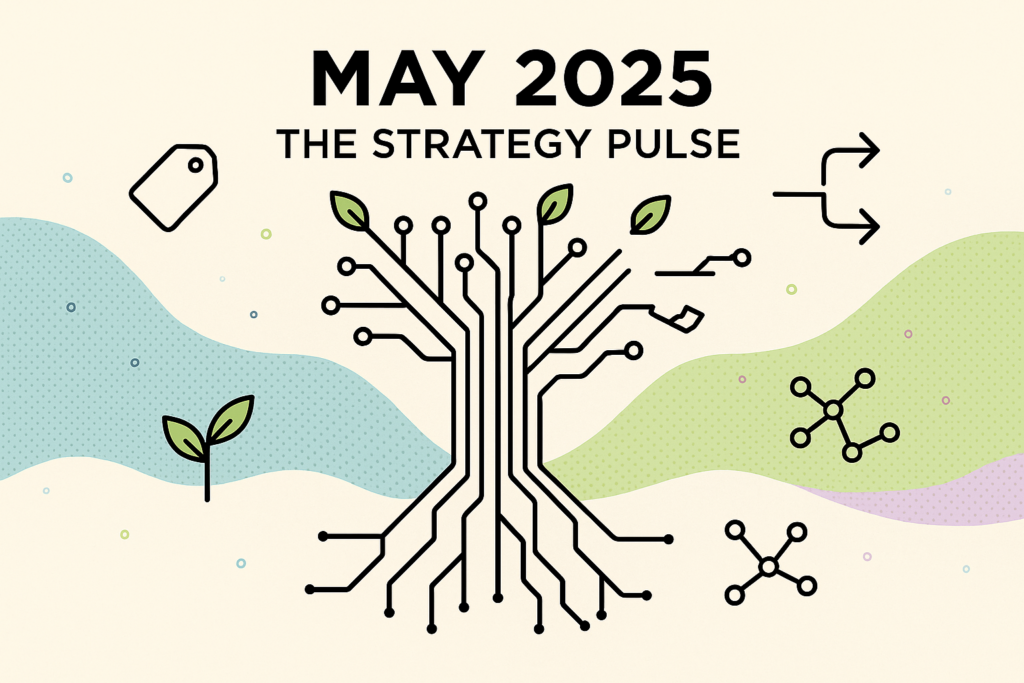Month: May 2023

What Gen Z Want From Employers
What Gen Z Want From Employers
May 10, 2023

Every generation has its unique quirks that set it apart from the cohort that came before them. It’s very unlikely that you’ll engage in conversation with someone much older than you without noticing some key generational differences.
For example, a Baby Boomer can be identified from a mile off. They’re the dad who’s far too liberal with the ‘thumbs up’ button, or the mum who overshares on Facebook. They’re the uncle who laments that the youth of today could easily be climbing the property ladder if they didn’t spend all their money on oat vanilla lattes and Netflix subscriptions.
And let’s be honest: It’s not that hard to spot a Millennial either. They’re the friend who uses GIFs and hashtags unironically, still wears skinny jeans, and is thoroughly convinced that FRIENDS is the peak of comedy.
All jokes aside, all generations have their defining differences, and ‘Gen Z’ is no exception. This emerging generation is only just beginning to make its mark as the youngest cohort of talent entering the working world. They may be young, but don’t be fooled: Their collective voice is powerful, and as a rule, they are a generation of distinctly civic-minded and values-driven individuals.
And when it comes to their priorities in the workplace, Gen Z are precipitating a sea change. While no two worker’s priorities look the same, and it’s impossible to paint every individual with the same brush, it’s safe to say that Gen Zers want more from their careers: A high salary and prestigious title just aren’t going to cut it anymore.
Gen Z are attempting to find their footing in a world that is fraught with anxieties, coming up against the aftermath of a global pandemic, climate change, a cost-of-living crisis and endless political tension on their doorstep – and their expectations from employers are evolving as a result.
Given the current economic climate, it’s not surprising that higher salaries remain an attractive pull for many candidates. However, there’s a more complicated nuance at play, too: LinkedIn found that 58% of UK professionals were staunchly opposed to working for a company that did not share their values – even if they offered higher pay. Indeed, 90% of Gen Zers and Millennials have at some point considered moving to a company that better aligns with their values.
According to the US Bureau of Labour Statistics, Gen Z is set to make up a third of the workforce by the end of this decade, so companies need to start seriously thinking about how to attract this younger pool of talent, addressing some of the key issues that matter to them.
Digital natives
Gen Z haven’t known a world without technology. They grew up in a manner totally alien to those older than them. Raised watching YouTube vloggers rather than Disney movies, many probably knew how to post a tweet before they learnt to speak.
On a serious note though, Gen Z are digital natives to their core. According to a recent survey by Kantar, 86% of Gen Zers considered flexible home working to be a deciding factor in a job search – it’s quickly becoming a non-negotiable for a vast majority of the younger generation. That’s not to say this younger pool of talent is boycotting the office; on average, 18–24-year-olds would ideally like to spend 56% of their time working off-site.
Evidently, companies looking to attract early talent need to accept that hybrid working is quickly becoming the new norm; Indeed, lockdowns caused by the pandemic merely sped up this inevitable transition towards a more flexible working model.
Diversity and inclusion
When it comes to social justice, Gen Z is a force to be reckoned with. This younger generation has already carved out a reputation for itself as being politically engaged and vocal about their beliefs: according to a recent survey, 62% of Gen Zers believe that they have the power to impact the world.
And when it comes to work, this younger generation doesn’t just leave their values at the door: according to the World Economic Forum, 72% of Gen Zers believe that racial equality is the most pressing issue in today’s workplace, while in another survey, 62% of recent grads and students said they would be more likely to work at a company that was committed to equal pay.
Early talent is socially engaged, so companies that want to appeal to this younger talent need to keep ahead of the curve when it comes to adopting progressive diversity and inclusion policies.
Mental health matters
If there’s one thing that truly sets Gen Z apart from the generations that proceeded them, it’s their attitude towards mental health. In general, younger people pride themselves on their collective openness regarding mental health issues. More and more people are opening up about their personal struggles on social media, and the internet is home to a wealth of useful information on the topic of mental health. Gen Z is determined to raise awareness about the importance of mental health.
In professional settings, Gen Z are looking to work for companies with a focus on mental health awareness. They are not willing to simply put up with toxic traditions and archaic workplace practices; Gen Z are confronting mental health issues head-on, and thus want to work at a company that fosters a supportive and nurturing environment for employees.
In a recent survey by Deloitte, mental health was the number one life priority for 28% of Gen Zers, overtaking physical wellbeing. Therefore, employers need to start following suit and taking mental health seriously.
What does this mean in practice, you may ask? Implementing policies that ensure work-life balance, ensuring the avoidance of micromanagement and other toxic workplace practices, coming up with wellbeing initiatives that put mental health front and centre, and scheduling regular check-ins with your employees to see how they’re getting on…to name a few examples. It’s crucial that employers work to cultivate an environment that fosters collaboration and community.
Environmentally conscious
Younger people are growing up in a world that is changing at a dramatic and terrifying rate. They’ve always had the haunting shadow of climate change ominously looming over them, and this has naturally shaped their attitude towards sustainability. Gen Z, on the whole, cares deeply about the environment, with a recent survey showing that the vast majority are willing to spend ten percent more on sustainable products.
With this in mind, it’s important that employers take a very close look at their own environmental policies. According to the UNiDAYS sustainability report, almost two thirds of Gen Zers believe that brands have a responsibility to take a stand on environmental issues, and the company they work for is no exception.
When it comes to environmental initiatives, think outside the box. It can be something small like a new recycling initiative, or a company-wide decision to overhaul product packaging for a more sustainable option. Perhaps look into securing BCorp status for the company, or launching mandatory training for staff on environmental matters.
Personal growth
Long gone are the days in which staying at the same company for forty plus years was the norm. These days, it’s far more normal to have a ‘squiggly’ career trajectory rather than a linear one; The median tenure for employees aged 25 to 34 is just under three years. With this the case, there’s a growing interest in personal development opportunities amongst young workers; A recent study found that workers aged 18-25 ranked learning and development opportunities above pay and benefits on their list of priorities when weighing up a job offer.
That means that companies need to offer more than a glitzy job title and high salary if they want to attract younger talent. Companies should consider comprehensive training programs, networking events, and new skill courses, as a few potential ways to appeal to early talent.

